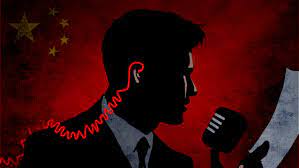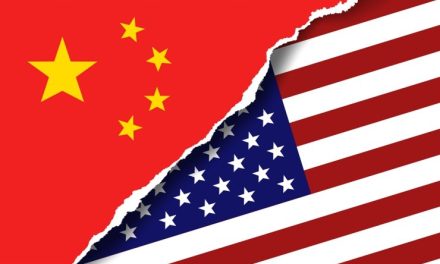By Jianli Yang and Rongbin Zhang
It’s crackdown season for China with the launch of the new “Five Year Governance Plan” by President Xi Jinping’s Communist Party, chiefly targeting the private sector.
Over the past few weeks, the Chinese government has unveiled a series of plans that are seen to further consolidate the CCP’s control over the media. In early October, China’s National Development and Reform Commission released its “Negative Market Access List (2021 Edition),” which includes a new prohibition on “illegal news and media-related businesses.” The list explicitly prohibits the use of non-public capital for the following purposes: to fund news gathering, editing and broadcasting; to invest in the establishment and operation of news organizations; or to operate the webpages, radio frequencies, television channels, newspaper columns, and social media accounts of news organizations.
It can be said that the Chinese Communist Party has left no stone unturned in its brazen censorship efforts, from Big Tech behemoths to the entertainment industry, and reaching far beyond China’s borders.
The plethora of mainstream and social media content once widely available to the Chinese public has dwindled since Mr. Xi came into power in 2012. Some of the world’s most widely-used websites and apps (such as Twitter, YouTube, Facebook, Snapshot and Instagram) have been banned in China. Chinese censorship of data and the internet—all within the confines of China’s “Great Firewall” or GFW—is gradually leading towards chaos, and everyone can feel the heat.
Aside from domestic censorship, the extent of the CCP’s control over international media and audiences has led China to acquire foreign legacy companies or to fund digital ventures overseas, including free graduate degree programs in communications, expense-paid tours, funding for advertorials, and sponsored journalistic coverage to tell the “Chinese story”—in a hyperbolic, adulating light, of course.
China has even attempted to propagate its utopian narrative in Africa, the Asia-Pacific region, and—to some extent—in European and Latin American countries. While Chinese media are strictly controlled by the CCP, Beijing eagerly seeks to exploit the free press outside its borders.
StarTimes is a Chinese electronics and media company with strongholds in the African-Saharan region. The South China Morning Post, an English-based newspaper in Hong Kong, is owned by Alibaba Group, a Chinese-based company. And CGTN (China Global Television Network), controlled by state-owned China Media Group, now offers programming in Spanish, French, Arabic and Russian.
Dr. Vivien Marsh, a visiting scholar at the University of Westminster who conducted an in-depth study of CCTV Africa’s coverage during the 2014 Ebola outbreak, stated: “About 17 percent of stories related to the Ebola outbreak emphasized China’s role in providing doctors and medical aid.” Marsh added: “They were trying to do positive reporting … but they lost their journalistic credibility … in the portrayal of China as a benevolent parent.”
In February 2021, Beijing pulled the plug on Britain’s BBC World News. China’s move was based on the BBC’s reporting of incidents of rape, abuse and torture by minority Muslim-Uyghur women in Xinjiang’s so-called “education camps.”
Beijing called the reports false, and China’s state-funded Xinhua News Agency reported: “The BBC violated regulations in its China-related reports and … its broadcast application [will] not be renewed.” Hu Xijin, an editor of the state-affiliated Global Times, tweeted that “[The] reports were all false. The BBC has become a bastion of the Western public opinion war against China.” Britain returned the favor to China by revoking China’s state-owned CGTN network license in the U.K.
Reporters Without Borders has called for the immediate release of Huang Xueqin, a Chinese investigative journalist who was detained in Guangzhou on September 19, 2021. The same day, Chinese labor activist Wang Jianbing was arrested and imprisoned under suspicion of “inciting subversion of state power.”
In September 2021, the Baltic nation of Lithuania warned the world against Chinese “censorship and detection” schemes, whereby various Chinese mobile phones (including Xiaomi 10T, Huawei P45, and certain OnePlus models) can detect and censor over 400 terms, including “free Tibet” and “China’s Democracy Movement.” Now, Chinese censorship has extended to the U.S. social networking company LinkedIn.
Virginia-based Bethany Allen-Ebrahimian is a journalist for Axios’s online weekly China newsletter, a U.S.-based website. She conducts high-impact investigations and writes exclusive articles and detailed analyses of Chinese-based news reports shared on LinkedIn. Unsurprisingly, this has gotten her into a lot of trouble with Beijing.
Another U.S.-based reporter, Melissa Chan, is a Chinese-American broadcast journalist who focuses on world issues involving the Chinese people and China’s influence beyond its borders. Ms. Chan shared a screenshot showing a LinkedIn notification that was blocked from mainland Chinese users. In a subsequent tweet, she described the prohibited content as an “essay on democracy” and a piece she wrote about the Uyghur Muslim community living in China’s Xinjiang region.
Since then, LinkedIn has blacklisted the accounts of several U.S. journalists (including Melissa Chan and freelance journalist Greg Bruno) from its China-based website.
Beijing’s ever-tightening grip on the media, both domestic and abroad, is silencing the voices of reason that civilization so desperately needs; eliminating the media watchdog’s ability to hold the CCP to account; and leaving China’s “internet” (technically an “intranet”) devoid of dissent, devoid of heterodoxy, devoid of anti-government criticism—and rife with a pro-government, hyper-nationalistic sentiment. Another negative outcome of China’s tightening grip on the media—and social media in particular—is that the rest of the world will be left with a narrower and narrower view of what is truly going on in China, which could lead to drastic geopolitical repercussions in the years ahead.




















